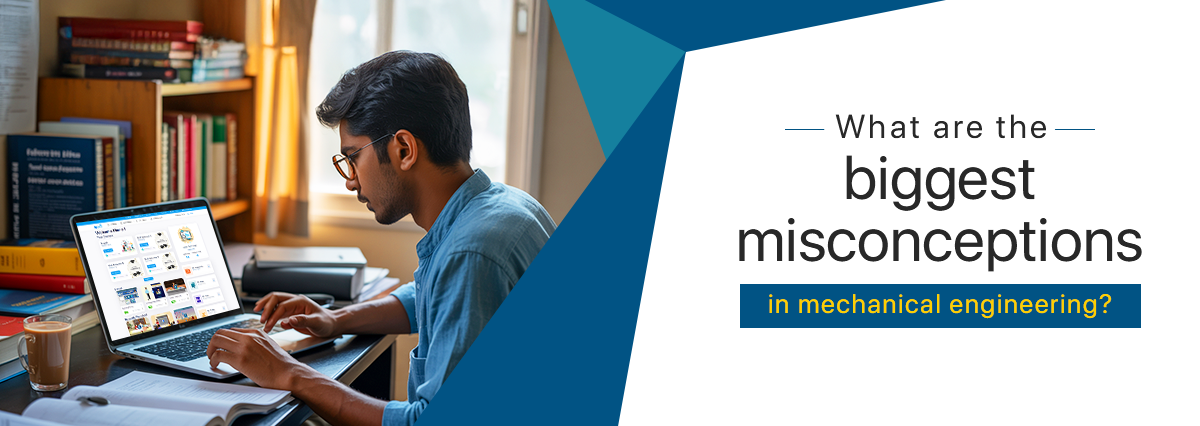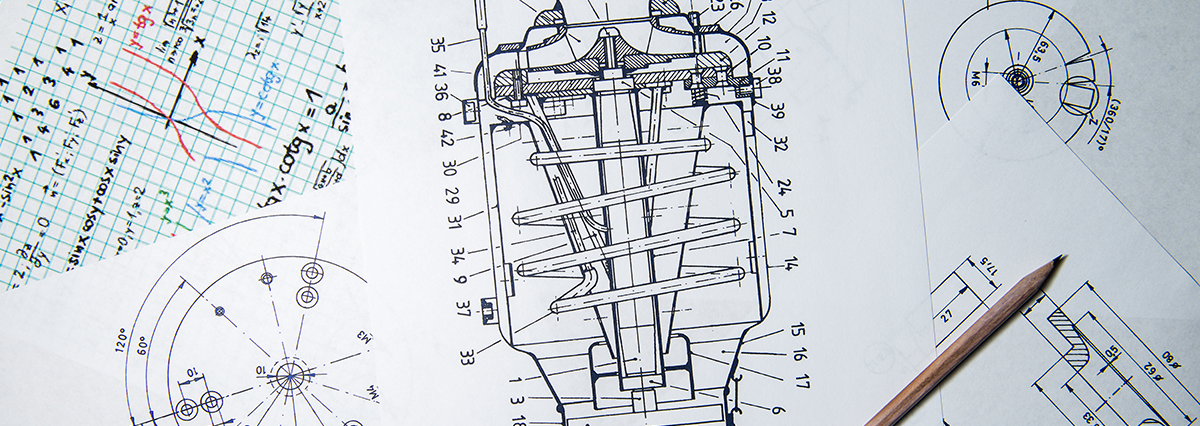
What are the biggest misconceptions about mechanical engineering?
Myth 1: Mechanical engineering is only about machines and engines
Reality: While machines and engines form the foundation, mechanical engineering covers much more. It includes product design, materials science, thermal systems, robotics, automation, and mechatronics. Engineers use simulation tools and explore AI integration and nanotechnology. For example, in India’s renewable energy sector, mechanical engineers design wind turbines and solar thermal systems.

Myth 2: It’s purely a hands-on, manual field
Reality:No, mechanical engineers have to use Computer-Aided Design (CAD), Finite Element Analysis (FEA), and Computational Fluid Dynamics (CFD). Engineers frequently use software to model, test, and optimise designs.
Myth 3: Career options are limited to factories or the automotive sector
Reality:Career paths in mechanical engineering go far beyond traditional roles. Engineers work in aerospace, renewable energy, biomedical devices, robotics, and research and development. India’s aerospace sector, for instance, depends on mechanical engineers for aircraft and propulsion system design. Many also contribute to healthcare innovation and automation technologies.
Myth 4: It’s a “men-only” field
Reality:Though once male-dominated, mechanical engineering now attracts more women. Many take up roles in design, research, and mechatronics. Educational institutions and companies actively promote gender diversity - it allows women engineers to break stereotypes and lead in their fields.

Myth 5: Mechanical engineers only work in technical roles
Reality: Mechanical engineers often transition into roles such as project management, operations, product strategy, consulting, and entrepreneurship. Their problem-solving skills make them well-suited for leadership and business. Several Indian startups in manufacturing and technology are led by mechanical engineers who blend technical know-how with strategic thinking.
Myth 6: Mechanical engineering pays less than other fields
Reality:Salaries vary based on skills, experience, and industry. High-tech sectors like automation, defence, aerospace, and robotics offer strong earning potential. Mechanical engineers in oil and gas or advanced manufacturing often earn competitive salaries. Continuous learning and specialisation have a greater impact on salary growth than just a degree or college brand.
At Mtutor, we believe mechanical engineering has the power to build the future. It combines strong basics with new-age technology to solve real-world problems. From clean energy to smart machines, this field offers endless possibilities. Our goal is to support students with clear and useful learning tools such as engineering study notes, so they can understand the subject better and move ahead with confidence.







